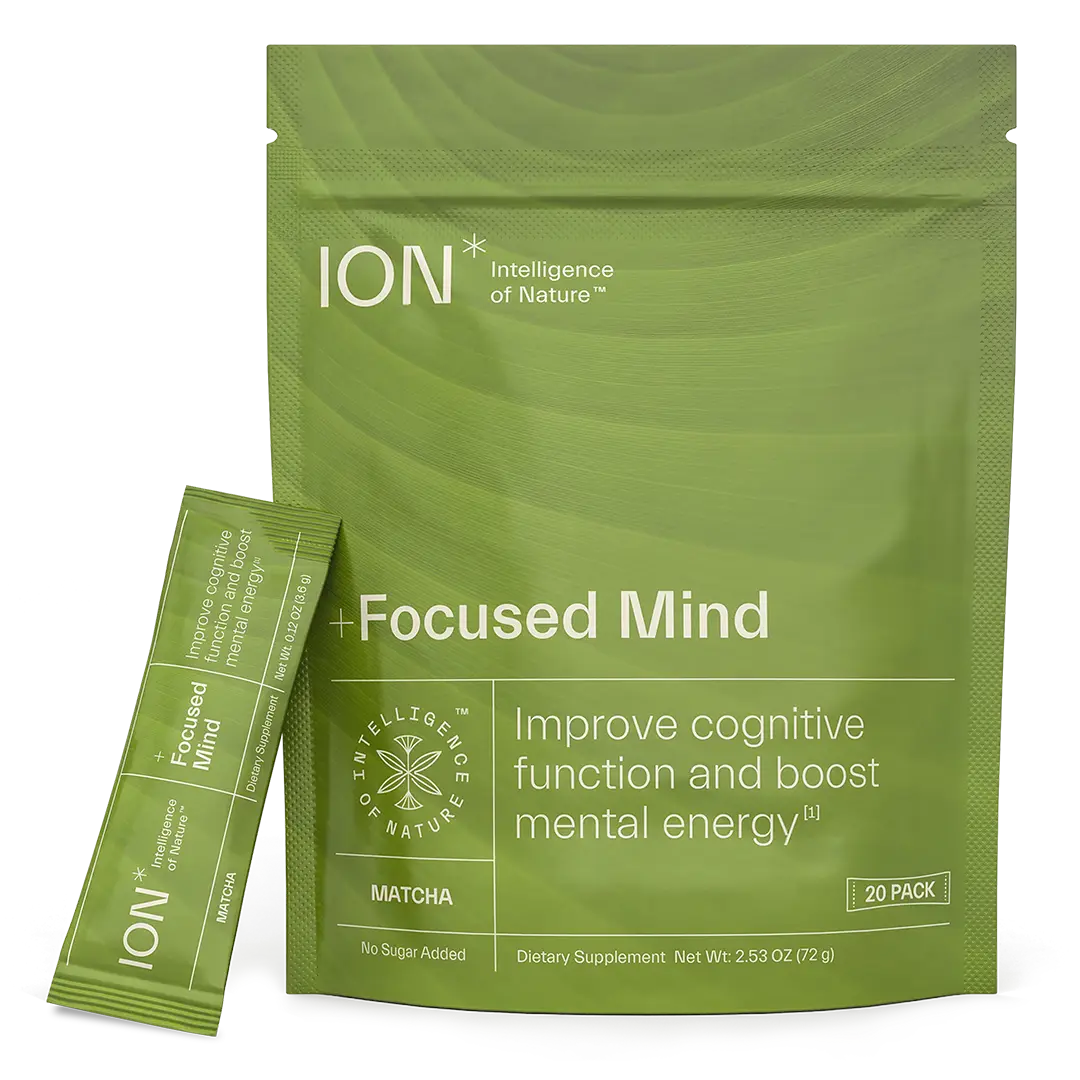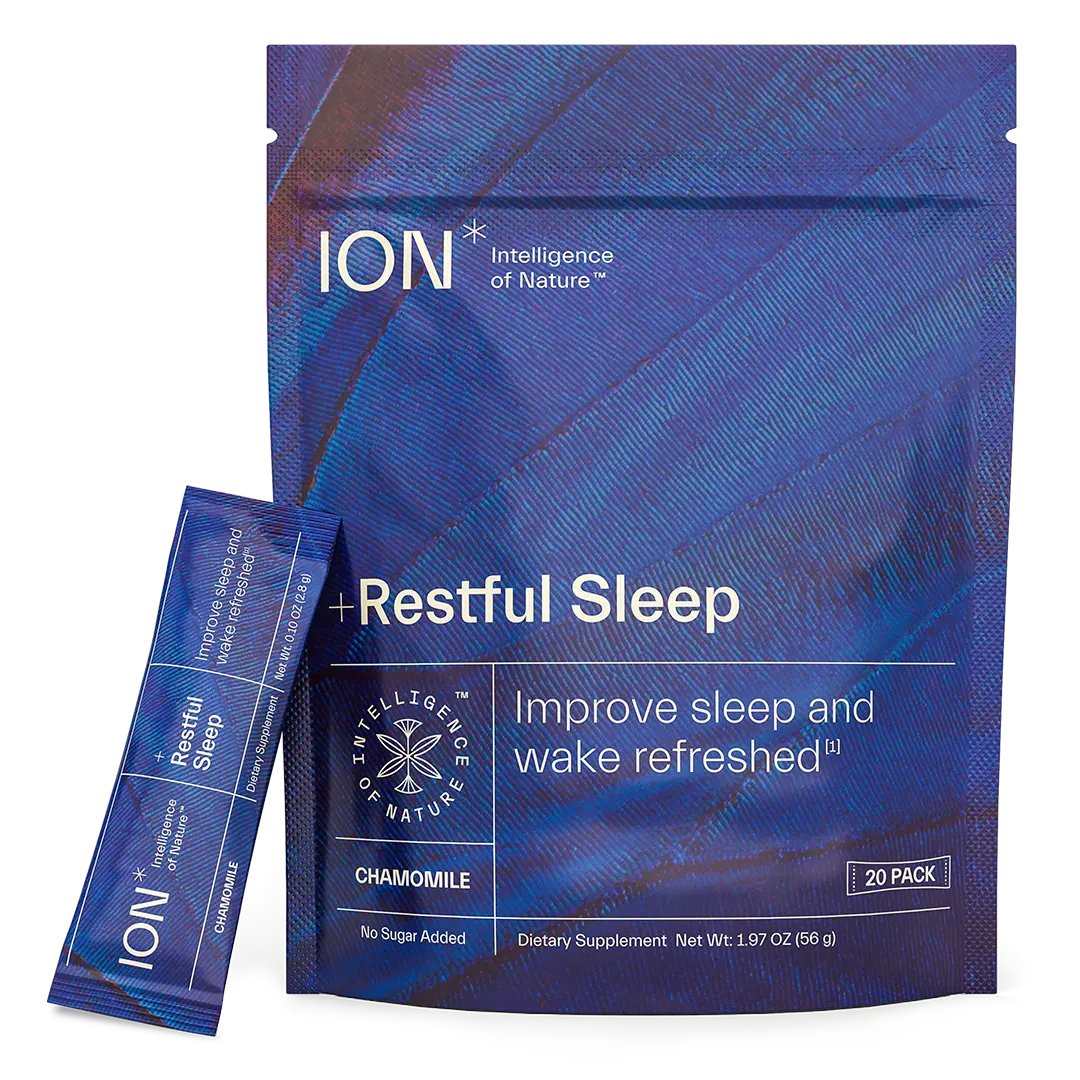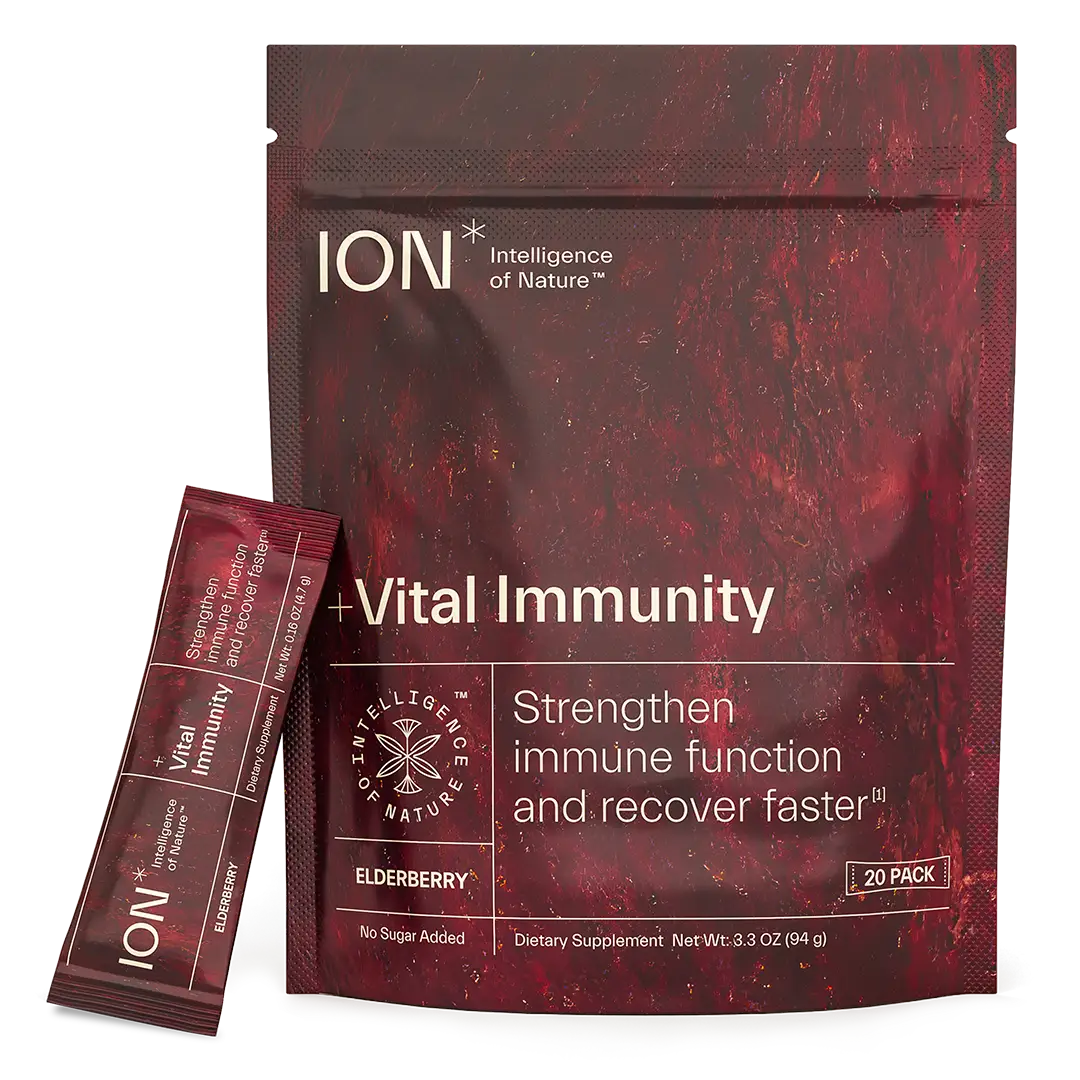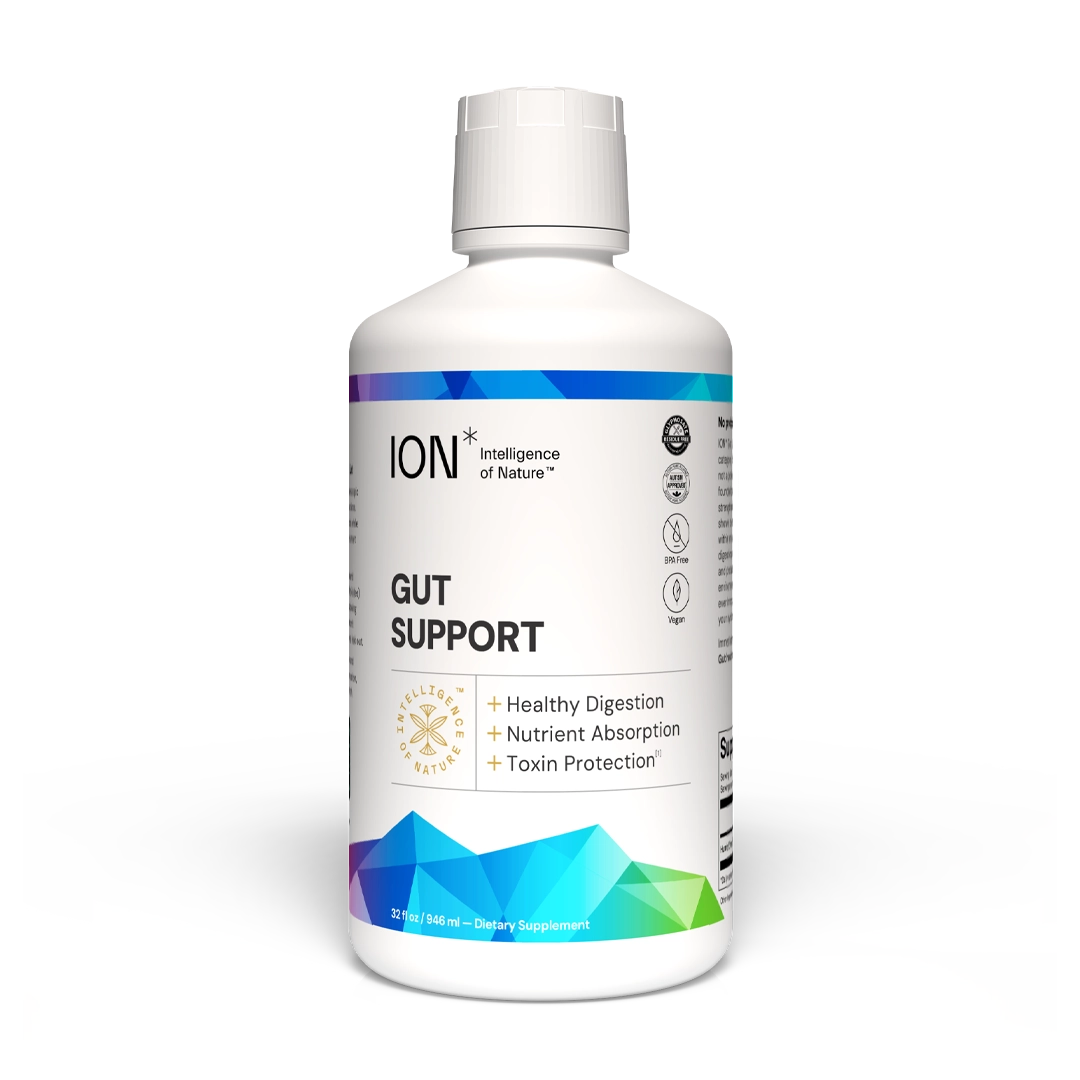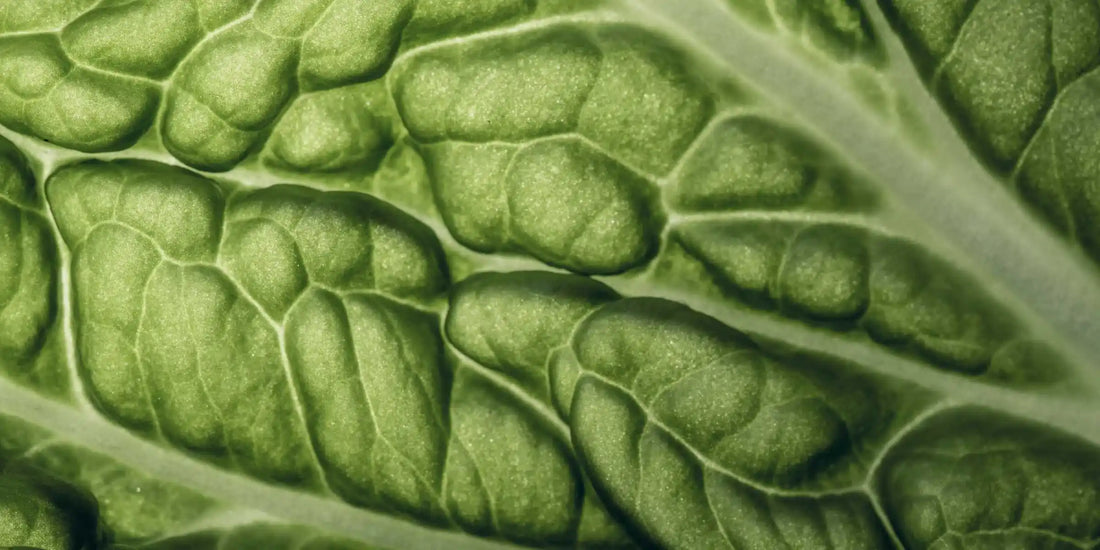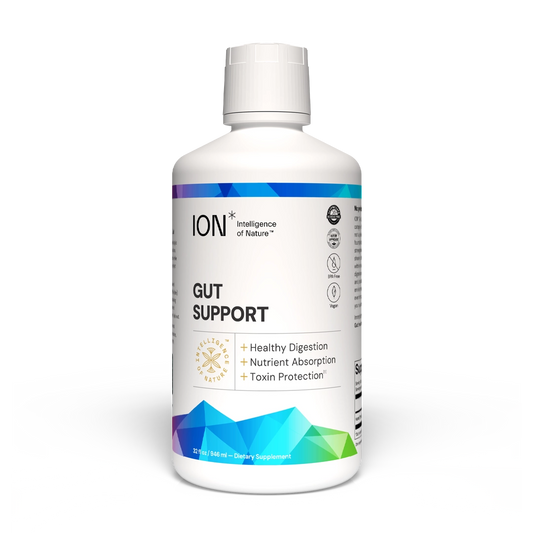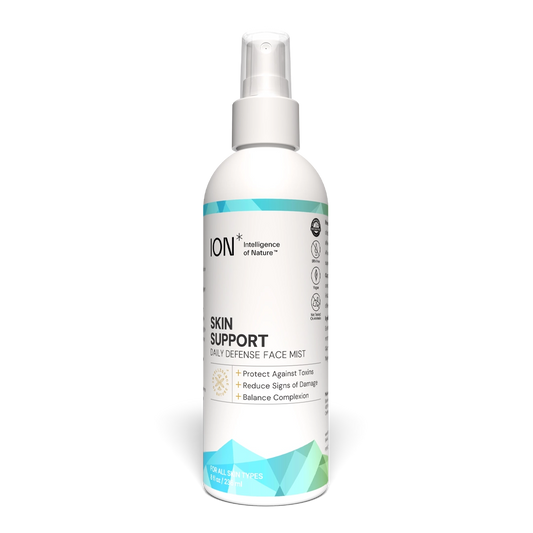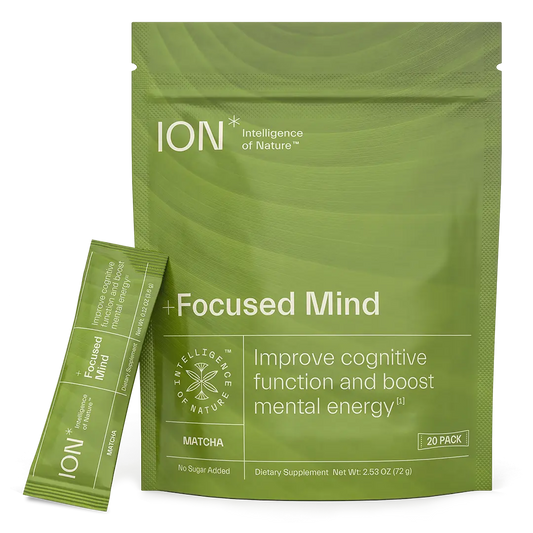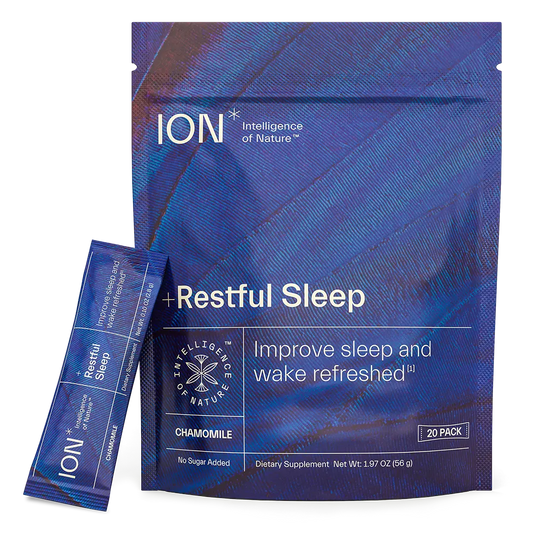Why is gut health important, again?
Every single moment we are learning more about the potency and power of the wireless communication between bacteria, fungi, and human cells. The vibrant symphony made possible by ION* coordinates the natural response mechanisms that all of these biologic systems should have, which is why we just can’t say it enough - gut health is critical for all stages and phases of health.
We are biologic healing machines and the only time we don’t do that is when we lack the information and connective tissue. This means we all have the ability to heal and it’s never too late.
Your gut is home to your microbiome, a bustling ecosystem made up of trillions of microorganisms that play a vital role in your short and long term health.
Everything from daily digestion to the majority of your immune function, to heart, skin, and brain health, sleep hygiene, and, yes, even more, are connected to your gut–and, importantly, your gut’s ability to function.
That’s why knowing how to restore gut health and taking action to improve it comprehensively boosts your health overall.
How long does it take to restore gut health?
The great thing is that with healthy habits, some people see improvements to their gut health in a matter of days!
But! (There’s always a “but,” isn’t there?) The real improvement happens once you’ve consistently kept up your good gut health habits for about 6 months1 or so. The reason for that length of time is based on the life cycle of gut bacteria.
If new habits are started but then stopped, the make-up of the all-too-important gut microbiome reverts back to its original, off-kilter composition (also known as ‘dysbiosis’), meaning all the issues that it caused can return, because you haven’t addressed the underlying issue.
And microbes, in broad terms, can be quite opportunistic little creatures. They can remain dormant, waiting for the ‘right’ environment for them to thrive to manifest, like periods of stress or increased sugar intake. Pathogenic bacteria, for example, can exist in something called biofilm–basically, a slime layer embedded into the GI tract that envelops the bacteria and other molecules. This film provides effective protection, making it difficult for even something as strong as antibiotics to penetrate and kill off the harmful bacteria.
That’s why restoring gut health can take longer and why the effort is more of a scientific art than an exact science. It really depends on a lot of factors, like the severity of a person’s gut dysbiosis, their lifestyle, their current habits, and medical conditions, etc.
Keep in mind, too, that the gut, by its nature of important connection to everyday and long term health functions, means it is always in a state of flux that can be shifted thanks to a lot of factors, including environment, medications, and stress. Restoring the balance and recolonizing gut bacteria after a round of antibiotics, for example, can take months once the medication wipes out all bacteria–good and bad.
Remember, the gut microbiome is complex, intricate, and delicately balanced. Changes to it (the gut microbiome) not only takes time to take effect, these changes can even cause some initial discomfort (bloating, gas, etc.) as the body adjusts.
The efforts are worth it, though. The juice is definitely worth the squeeze to get to better gut health.
What can you do to restore your gut health?
Here are some scientifically proven suggestions:
1. Eat plenty of gut-pleasing foods and cut back on the problematic ones.
Nutrition is more powerful than any drug. Your diet is, of course, one of the most important things you can control to improve, restore, and maintain your gut health. It's not just about “eating the rainbow” as nutritionists say, it’s about eating as close to the source as you can. This means seeking out your local regenerative organic farmer for the most nutrient dense produce for you and your family. You can search for your local regenerative farm here. The best foods for gut health involve enjoying an abundance of fruits, veggies, leafy greens, legumes, wholegrains and other high-fiber foods, nuts, seeds, and fermented foods including kimchi.
While that’s good advice for everyday eating and health, there’s a couple gut health stars worth a special call out.
- The reason fermented foods are important is because they are natural sources of diverse probiotics, which can really improve gut health. Try: kombucha, miso, sauerkraut, and tempeh.
- Asparagus, bananas, chicory, garlic, onions, and whole grains are all great sources for prebiotics. Getting prebiotics in your diet are especially important, as they are food for probiotics! They promote the growth of beneficial gut flora and also what’s known as ‘peristalsis’ in the gut–which basically means they help effectively eliminate waste.
- Greens are rich in living phytonutrients and are highly alkalising, which can help with cleansing, healing, and detoxifying.
And just as important to what you eat is what you don’t. For your best gut health, cut down on inflammatory foods, like sugar, sweeteners, processed foods, conventionally grown produce, gluten, and alcohol. These are all linked to an overgrowth of pathogenic bacteria in the gut and other health woes.
For example, the artificial sweetener aspartame increases the number of some bacterial strains that are linked with metabolic disease–a group of conditions that increase the risk of heart disease and diabetes.
Artificial sweeteners in general have been shown to have a negative effect on the gut and heart connection, impacting blood glucose despite not actually being sugar because of the impact they have on gut flora.
And finally, make sure you’re drinking enough water.
2. Reduce your stress
Like many other parts of your health, managing stress is essential for gut health, too. In the gut, specifically, studies suggest that psychological stressors can disrupt the gut microbiome, even if the stress is only short-lived.
Typical gut-harming stressors include:
- psychological stress
- environmental stress
- disrupted sleep / circadian rhythm
That’s why managing your stress is crucial. Easier said than done, of course. If only it was as simple as snapping your fingers and announcing, “I will no longer be stressed!” But baby steps can start to make a big difference.
Some stress management techniques include meditation, deep breathing exercises, walking in nature, and yoga. Regular exercise, sleep, and a healthy diet can also help reduce stress levels.
Also related, dysbiosis has been linked to psychological issues connected to stress, including irritability and brain fog.
And if you are looking for a guided health journey to integrate intrinsic ways of living into your life, read more about ION* Founder Zach Bush’s course and community experience: The Journey of Intrinsic Health, an 8-week health transformation experience.
3. Get enough sleep!
And speaking of stress, getting enough sleep can massively help reduce stress levels. Sleep also allows your body to enter what’s colloquially called “rest and digest”, a period where your body is better able to absorb nutrients (that’s the ‘digest’ part).
Sleep plays a vital role in the regenerative processes of every tissue in the human body. Failure to get enough sleep can elevate the chemicals in your body which promote inflammation. Increased inflammation prevents tissue healing and fosters chronic disease states.
Sleep is also tied to immune function and hormone regulation. Like a healthy gut, good sleep can actually help strengthen and fortify your overall immune system’s ability to thrive. And good sleep can help regulate ‘hunger’ hormones like leptin and ghrelin so you’re better able to recognize being sated. On the other hand, when you get poor sleep, these hormones can get thrown off and lead to overeating and weight gain–which negatively impacts gut health, too.
4. Exercise
Getting in exercise is important. Studies have shown that regular exercise can contribute to healthier gut flora and a more diverse microbiome, which, in turn, can also help control obesity.
Try the 4-minute workout developed by ION* Founder Zach Bush, MD. The workout revolves around the body’s ability to use Nitric Oxide for muscle growth. This is an efficient anaerobic workout that can be done multiple times per day.
Nitric Oxide is a molecule made by the human body that feeds your muscles. When you start to exercise and run out of oxygen (you feel your muscles ache), Nitric Oxide is released. As it moves downstream, blood vessels dilate allowing more oxygen and nutrient delivery for muscle growth.
Our blood vessels actually only store about 90 seconds worth of Nitric Oxide before they need to manufacture more, so working each major muscle group out for 90 seconds gives you the most efficient workout to tone and build muscles.
The body has the ability to regenerate Nitric Oxide every couple of hours, giving you the opportunity to release it multiple times a day. What that means is the most effective way to increase your muscle function is to work out very briefly every few hours.
The Four Minute Workout can be completed multiple times per day no matter where you are, who you’re with, or what you’re wearing. In just four minutes you exercise the 16 largest muscle groups in your body. It is free, easy, effective, and the best way to start toning your body systems. Watch it here.
5. Mind your use of prescribed antibiotics and antibacterial cleaning products
The overprescribed nature of the medicine has led to all sorts of issues, including poor gut health. Basically, because antibiotics kill all bacteria in your system and you specifically need a diverse ecosystem of bacteria in your microbiome for it to thrive, your gut health and its ability to function is thrown off balance when you take a course of antibiotics.
Additionally, antibacterial products like multipurpose disinfectant cleaners can disrupt your gut microbiome! In fact, researchers have found that the gut flora of infants who live in homes that used disinfecting cleaning products at least once a week were twice as likely to have higher levels of pathogenic gut microbes that are associated with type 2 diabetes and obesity. Furthermore, by age 3, these same infants had higher BMIs than those who had not been exposed to such high levels of disinfectants.
Gut health (like all health!) isn’t a destination, it’s a lifelong journey.
The above are all great habits to enact to help restore gut health, but don’t forget you also need to maintain your happier, healthier gut. And while diet and exercise are controllable, some things are not–like environmental toxins and pesticides including glyphosate (even if you eat organic!) harms gut health, too. That’s why in addition to restoring gut health, supporting your gut beyond the external level is important (also, because no one can eat, sleep or exercise perfectly all the time).
That’s where ION* Gut Support can make all the difference and be your daily ritual to help your gut health, no matter what.
Not a probiotic, prebiotic, or other narrowly-focused supplement, ION* Gut Support is a completely different sort of wellness solution–one that works with your body without adding anything new to it.
All natural ION* is scientifically proven to go straight to the foundational level in your gut and help tighten cellular junctions that are key for all gut function–everything from digestion to immune health and more. ION* also fortifies your natural defenses and helps bolster the terrain upon which your unique microbiome lives so it can thrive and flourish, which is also necessary for gut health.
ION* is easy to integrate into your daily routine and gentle enough for the whole family. It’s an easy-to-take liquid wellness supplement that can make a powerful difference for your health.
Ready to start your happier, healthier gut journey? Try ION* for yourself today.
Source: 1 Gedds, Steve “How long does it take to regain my gut health?” Body Good Food. AUG. 21 2019
